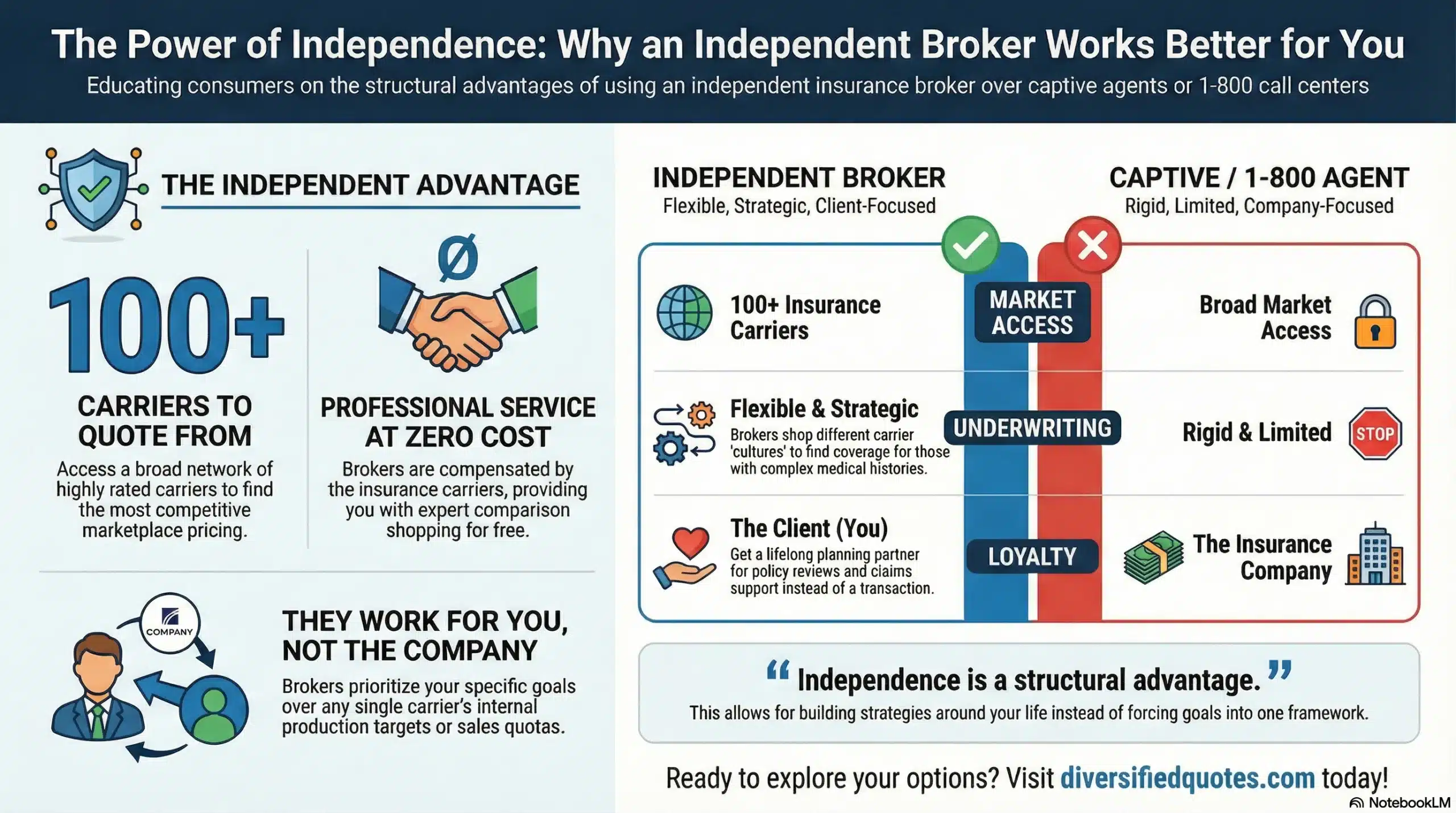Life Insurance to Fund Buy Sell Agreements

Jason Stolz CLTC, CRPC
When business partners build a company together, they invest more than capital. They invest years of effort, relationships, reputation, and often personal guarantees tied to loans or leases. Yet one of the most overlooked risks in any privately held company is what happens if one owner dies unexpectedly. Without a clearly drafted and properly funded buy-sell agreement, surviving partners can suddenly find themselves in business with a spouse, child, or estate executor who may have no operational experience or desire to participate. At the same time, the deceased partner’s family may urgently need liquidity, especially if much of their net worth is tied up in the company. A properly structured buy-sell agreement funded with life insurance creates clarity in advance and liquidity on demand, ensuring ownership transitions are orderly rather than chaotic. For owners navigating underwriting complexity or higher-risk industries, including life insurance for the marijuana industry, proper carrier positioning and case design are especially important to guarantee enforceable funding when it matters most. Business continuity planning also frequently overlaps with broader personal protection strategies such as protecting your funds in retirement, since many owners rely on the business itself as a core retirement asset.
A buy-sell agreement establishes the legal roadmap for what happens to ownership shares upon death, disability, or other triggering events. But the agreement alone does not solve the liquidity problem. If a partner’s equity is worth several million dollars, the surviving owners must have immediate access to capital to complete the purchase. Without funding, they may be forced to liquidate assets, borrow from lenders, dilute ownership with outside investors, or negotiate under emotional pressure with heirs. Life insurance solves that gap efficiently. The policy pays a death benefit—generally income tax-free—at the moment it is needed. That capital is then used to purchase the deceased owner’s interest at a pre-agreed valuation. The result is continuity for the company and fair value for the family. Owners often pair buy-sell planning with other corporate risk strategies, including key person life insurance for executives, which protects revenue streams tied to critical individuals. Together, these strategies reinforce stability across multiple risk dimensions.
Estimate Coverage for Your Buy-Sell Agreement
Model policy amounts aligned with your company’s valuation and ownership percentages using our quoting tool below.
Structurally, buy-sell agreements are typically organized as cross-purchase or entity-purchase arrangements. In a cross-purchase design, each owner holds a policy on the other owners. When one partner dies, the surviving partners receive the proceeds personally and purchase the shares from the estate. This model can increase the surviving owners’ tax basis and works well in small partnerships. In an entity-purchase, or stock redemption structure, the business owns the policies and redeems the deceased owner’s shares directly. This can simplify administration in companies with multiple shareholders. Hybrid agreements combine elements of both, allowing flexibility as ownership evolves. Determining the appropriate structure requires coordination with legal counsel and tax advisors to evaluate basis implications, corporate structure, and estate exposure. For owners already evaluating individual protection, comparing group vs. individual life insurance can also highlight why personally owned policies may not be sufficient for business succession needs.
Valuation discipline is equally critical. A buy-sell agreement should clearly define how the business will be valued at the time of death. Some companies rely on a fixed price updated annually. Others use a formula based on EBITDA multiples, revenue, or independent appraisal. Without consistent updates, coverage can drift away from true enterprise value. Underinsuring creates shortfalls that must be financed elsewhere. Overinsuring wastes premium dollars and can complicate underwriting approval. Life insurance carriers will review financial documentation to confirm insurable interest and ensure requested death benefits align with economic risk. In certain cases—particularly when an owner has health concerns—pre-underwriting strategy becomes essential. Business owners with medical histories may benefit from reviewing guidance on life insurance with pre-existing conditions to understand how stability timelines affect approvals and ratings.
Policy type selection influences long-term reliability. Term insurance offers cost-effective coverage and may be suitable for younger partnerships with defined time horizons. However, businesses expected to operate indefinitely often prefer permanent insurance to eliminate expiration risk. Permanent policies can also build internal cash value, which may serve as a financial asset on the balance sheet depending on accounting treatment. Selecting financially strong carriers with consistent performance history reduces counterparty risk. For partners who have never applied for coverage individually, understanding the underwriting process—such as what happens during a paramedical exam explained in what is a life insurance exam—helps set expectations and streamline approval.
Beyond death triggers, disability buy-out insurance can complement life insurance funding. If an owner becomes permanently disabled, disability buy-out coverage provides lump-sum capital after a waiting period to facilitate ownership transfer. Integrating both death and disability funding creates a comprehensive continuity plan. Business owners should also review beneficiary coordination, estate implications, and trust ownership where appropriate to avoid unintended tax consequences. For families who later need to track documentation, knowing how to find an old life insurance policy can simplify claims administration during already stressful periods.
Consider a scenario in which three partners own a technology consulting firm valued at $9 million. Each owns one-third. Without insurance funding, the death of one partner creates a $3 million liquidity obligation. If profits are reinvested and working capital is tight, financing that buyout may strain operations or require bringing in an outside investor. Now contrast that with a funded agreement supported by $3 million in properly structured life insurance per partner. Upon death, the proceeds arrive promptly. The surviving partners purchase the shares. The deceased partner’s family receives fair value without prolonged negotiation. Employees, clients, and vendors observe stability rather than uncertainty. The funding mechanism transforms a potential crisis into a controlled transition.
Buy-sell planning is not limited to large corporations. Professional practices, closely held family businesses, and multi-owner service firms face identical risks. In many of these companies, the majority of each owner’s personal net worth is concentrated in the business itself. Without liquidity planning, that wealth becomes illiquid at the exact moment heirs need access. Coordinating buy-sell funding with broader retirement and estate planning ensures the company remains both an operational asset and a financial cornerstone. By combining a clearly drafted agreement with strategically structured life insurance, owners protect their legacy, their partners, and their families in one unified strategy.
Protect Your Business and Your Family
We compare 100+ carriers to design buy-sell funding strategies aligned with your valuation and ownership structure.
Request a Business Planning ConsultationOr call 800-533-5969 to speak with an advisor.
Key Person Life Insurance for Executives
Protect company revenue and investor confidence by insuring critical leadership roles that drive profitability and strategic direction.
Explore Key Person CoverageLife Insurance with Pre-Existing Conditions
Understand how medical history impacts underwriting and how to position applications strategically for favorable approvals.
Review Underwriting GuidanceGroup vs. Individual Life Insurance
Compare employer-sponsored plans to personally owned coverage when designing comprehensive business protection strategies.
Compare Policy StructuresHow to Protect Your Funds in Retirement
Coordinate business succession planning with long-term retirement income strategies to preserve wealth and stability.
Strengthen Retirement Planning
Talk With an Advisor Today
Choose how you’d like to connect—call or message us, then book a time that works for you.
Schedule here:
calendly.com/jason-dibcompanies/diversified-quotes
Licensed in all 50 states • Fiduciary, family-owned since 1980
Life insurance provides immediate liquidity at death, allowing surviving owners to purchase the deceased partner’s shares without borrowing, selling assets, or disrupting operations. Because the death benefit is generally income tax-free, it delivers capital efficiently and precisely when it is needed most.
In a cross-purchase agreement, each owner holds a policy on the other owners and personally receives the proceeds to buy the shares. In an entity-purchase (stock redemption) structure, the business owns the policies and redeems the deceased owner’s interest directly. The right choice depends on ownership size, tax considerations, and administrative simplicity.
Coverage should align with each owner’s proportional share of the company’s current valuation. Businesses often update valuations annually to ensure policy amounts remain accurate as revenue and profitability grow.
Term insurance may be appropriate for businesses with defined time horizons or younger owners seeking cost efficiency. Permanent insurance is often preferred for long-term companies that want guaranteed coverage without expiration risk. The decision depends on cash flow, long-term plans, and business stability.
Death benefits are generally received income tax-free. However, the structure of the agreement can influence basis adjustments and estate tax considerations. Coordination with legal and tax advisors ensures proper implementation.
If the company grows and coverage is not updated, a funding gap can develop. Regular reviews and valuation updates help ensure policy amounts remain aligned with actual ownership value.
Many businesses supplement life insurance with disability buy-out insurance. This provides funding if an owner becomes permanently disabled, ensuring continuity even when death is not the triggering event.
About the Author:
Jason Stolz, CLTC, CRPC and Chief Underwriter at Diversified Insurance Brokers, is a senior insurance and retirement professional with more than two decades of real-world experience helping individuals, families, and business owners protect their income, assets, and long-term financial stability. As a long-time partner of the nationally licensed independent agency Diversified Insurance Brokers, Jason provides trusted guidance across multiple specialties—including fixed and indexed annuities, long-term care planning, personal and business disability insurance, life insurance solutions, and short-term health coverage. Diversified Insurance Brokers maintains active contracts with over 100 highly rated insurance carriers, ensuring clients have access to a broad and competitive marketplace.
His practical, education-first approach has earned recognition in publications such as VoyageATL, highlighting his commitment to financial clarity and client-focused planning. Drawing on deep product knowledge and years of hands-on field experience, Jason helps clients evaluate carriers, compare strategies, and build retirement and protection plans that are both secure and cost-efficient.
